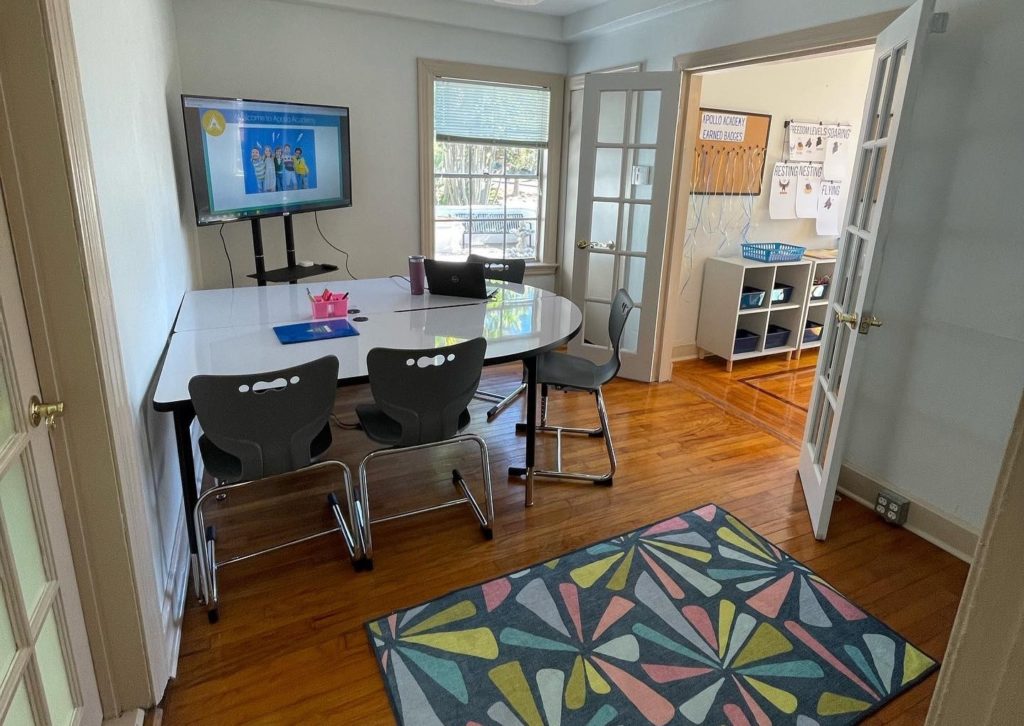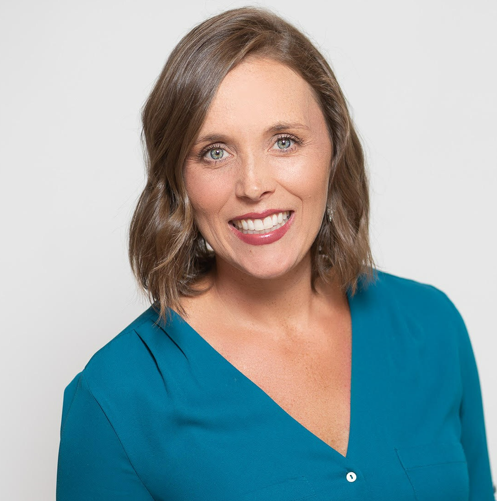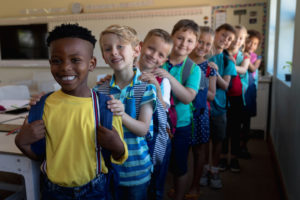Former business exec launches Tampa microschool focused on self-directed learning
“Acton is a learner-driven approach. It literally flips the education system upside down. It’s highly focused on teaching students how to think, to do, to be, to know.” –Beth Ann…

“Acton is a learner-driven approach. It literally flips the education system upside down. It’s highly focused on teaching students how to think, to do, to be, to know.” –Beth Ann Valavanis

A former healthcare executive is among a growing number of entrepreneurs taking a hard look at traditional education models, hoping to forge a path beyond lectures, homework, tests and strict timelines for mastering skills.
Beth Ann Valavanis, a graduate of district schools in the Atlanta area and the University of Georgia, had planned to enroll her daughter, Emilia, in one of South Tampa’s highly rated district schools. But then she was introduced to a book written by Laura Sandefer, who with her husband, Jeff, co-founded Acton Academy. Sandefer’s book inspired Valavanis to start a K-5 school following Acton’s principles of self-directed learning.
Based in South Tampa, Valavanis’ Apollo Academy is one of several Acton affiliates opening this fall in Florida. (Click here for a list of Acton affiliates across the United States.)
Valavanis spoke with reimaginEDonline about how she became an Acton affiliate and her reasons for launching Apollo Academy. Answers have been edited for brevity and clarity.
Q. What made you want to start a school?
A. Apollo Academy came into existence for two reasons. One is that I have a two-and-a-half-year-old, and the Acton approach just aligned with what my husband and I want for our family. And, I had been working in business for the last 14 years running companies and had sold a private equity company, and I knew whatever I did next was going to have to be centered around affecting my local community. I didn’t know I was going to be starting a school.
Q. How did you discover Acton Academy?
A. We had been living between Chicago, Atlanta, and Tampa Bay. Once we had Emilia, we said, ‘If South Tampa is going to be our home, we’ve got to start exploring some options.’ During the summer of 2020, I was working, going to the office every day, and I started listening to books about childrearing. It was during a time of tension – George Floyd was killed – and I thought, ‘This is not the world I want my daughter to grow up in.’ Someone recommended Laura Sandefer’s book, “Courage To Grow.” I’d get to work in the morning and wouldn’t want to get out of my car. I listened to all of it in two-and-a-half days.
Q. What attracted you to the Acton’s model?
A. Something just clicked for me. We had thought of sending our daughter to public schools, because my husband and I went to public schools, and our experience was fine. There are a lot of really great public and private schools here, but the only option if you don’t want to drive longer than 15 minutes is a religious school. Also, a lot of things came back to me from my educational experience as I started exploring Acton. For example, I remember starting work at KPMG International and someone asked me a question that I didn’t have an exact answer for, and I remember thinking, ‘No one really taught me how to think.’ When I started exploring Acton, I realized this is a great fit for our family. Once you know, you can’t unknow.
Q. I understand that Acton approves only a small number of the more than 1,000 applications they receive each year. What did you have to do to be named an affiliate?
A. It’s kind of like Cross Fit. You have a lot of autonomy, but you have to be approved to use the rights and get access to all the curricula. It was an audition process, a lot of essays, videos, and confirmation that I did a lot of research on my own. They look for educators and entrepreneurs who just know there’s got to be a better way to educate children.
Q. What needs do you hope to fill for families as an Acton affiliate?
A. In South Tampa, there are no alternative options short of homeschooling. There is a huge need for other options that do education a little differently because some students do not fit into the box of traditional schools.
Q. How does Acton do education differently?
A. Acton is a learner-driven approach. It literally flips the education system upside down. It’s highly focused on teaching students how to think, to do, to be, to know. When you provide an environment that harnesses children’s curiosity and allow them to explore at will, to fail quickly, often, and cheaply, and to celebrate that, that’s so freeing. To think that my daughter could be in a place where it’s not, ‘You failed, so you get a C; let’s move on,’ it’s ‘Why don’t you stay with this a little bit longer, try something different until you get mastery,’ because that’s what the world is really like.
Q. Is it true that Acton requires no memorization and no homework?
A. In 2022, we don’t need to memorize anything anymore. We have everything in a device held in our hands. As for assigned homework, there is none. I have friends who are so beaten down that the only quality time they get with their children is at the dinner table when they are trying to make them do worksheets. There is a program Acton students do that they master involving basic math, but they do it at their own pace. They won’t have to memorize the names of every U.S. president.
Q. Apollo’s tuition is $10,000 a year. That’s out of financial reach for some families. Will your school participate in Florida’s school choice scholarship program, or would you consider participating in an education savings account program that allows families to use their funds for non-traditional schools if the Florida Legislature approves one?
A. So many parents call, and the first question is, ‘Do you take the scholarships?’ So, I know there’s market for it. I have served as a guardian ad litem, and I think that worked to shine a new light for me on disparities that exist in education. Two students in an area can go to two public schools, but the experience is vastly different. We are very affordable, but our goal hopefully for next year is to accept school choice scholarships.
This article originally appeared at reimaginED.



